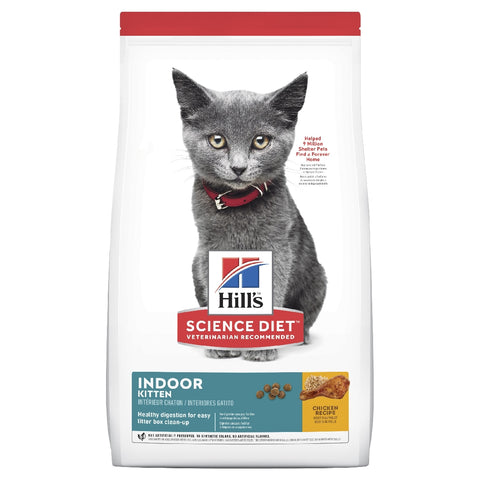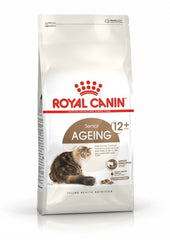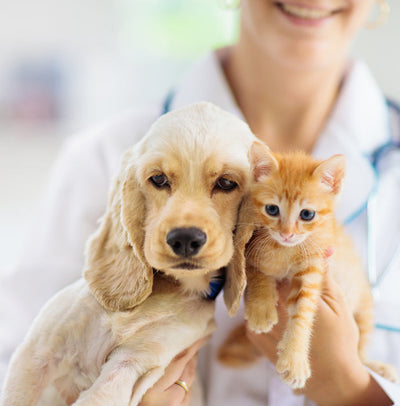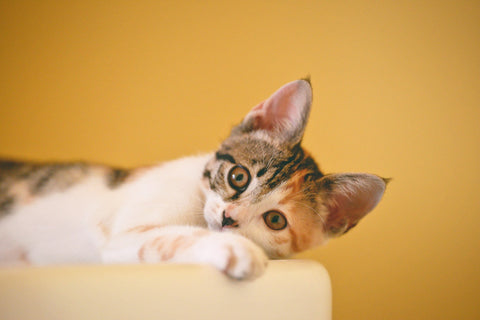
From playful kittens to wise senior cats, understanding the nutritional needs of our feline companions at each stage of life is crucial for their overall well-being. Just like humans, cats have unique dietary requirements as they grow and age.
In this article, we delve into the importance of stage-specific cat food and how it can contribute to our four-legged friends' health at each life stage. Whether your furry companion is a rambunctious kitten, a curious adolescent, an active adult, or a graceful senior, providing them with the right nutrients is vital for their growth, energy, and longevity.
We explore the specific nutritional requirements of kittens, such as high protein and fat content, which support their rapid growth and development. We also shine a spotlight on the needs of adult cats, including the importance of balanced nutrition and preventing obesity. Additionally, we delve into the needs of senior cats, emphasising the inclusion of specific ingredients that promote joint health and cognitive function.
By understanding the unique nutritional needs of our cats at different life stages, we can ensure they lead happy and healthy lives. Join us as we uncover the world of stage-specific cat food and its impact on our feline friends.
The different stages of a cat's life
Cats go through several distinct life stages, each with its own set of nutritional needs. Understanding these stages will help us better cater to our feline friends' dietary requirements.
1. Kittens
Kittens are bundles of energy and curiosity. During this stage, their bodies are growing rapidly, and they require a diet that supports this development. Kittens need high levels of protein and fat to fuel their growth and provide them with the energy they need for their playful antics.
Protein is essential for muscle development, and it also supports the healthy growth of organs, tissues, and bones. Additionally, kittens require higher levels of fat compared to adult cats as it provides them with a concentrated source of energy. This is why it is crucial to feed them a diet specifically formulated for kittens.
Kitten-specific cat food is designed to meet these unique needs. It contains higher levels of protein and fat to support their growth and development. Look for cat food labeled as "kitten formula" or "kitten-specific" to ensure your furry friend is getting the nutrients they need.
2. Adult cats
Once kittens reach their first birthday, they transition into adulthood. Adult cats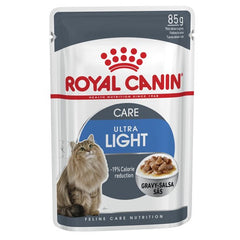 have different nutritional requirements compared to kittens. It is important to provide them with a balanced diet to maintain their health and prevent issues like obesity.
have different nutritional requirements compared to kittens. It is important to provide them with a balanced diet to maintain their health and prevent issues like obesity.
Adult cats need a well-rounded diet that includes a mix of proteins, fats, carbohydrates, vitamins, and minerals. Protein is still a crucial component, but the amount needed may be slightly lower compared to the kitten stage. A balanced diet helps support their overall health, including their immune system, skin, and coat.
When choosing cat food for adult cats, look for options that have a good balance of nutrients. Read the labels carefully and ensure the food contains high-quality protein sources and limited fillers. Avoid foods that contain excessive amounts of carbohydrates, as cats are obligate carnivores and do not require large amounts of carbohydrates in their diet.
3. Senior cats
As cats age, their nutritional needs change once again. Senior cats require a diet that addresses age-related health concerns, such as joint health and cognitive function. Just like humans, cats can experience a decline in these areas as they grow older.
Senior cat food is specially formulated to support the changing needs of older cats. It often contains ingredients like glucosamine and chondroitin, which promote joint health and mobility. Omega-3 fatty acids, such as those found in fish oil, are also beneficial for maintaining cognitive function in senior cats.
When transitioning your cat to senior cat food, do so gradually to avoid stomach upset. Mix a small amount of the new food with their current food and gradually increase the proportion of the new food over several days. This will help your cat adjust to the new diet without digestive issues.
Understanding the ingredients in stage-specific cat food
Stage-specific cat food is tailored to meet the unique needs of cats at different life stages. Understanding the ingredients in these formulas is essential for providing optimal nutrition to our feline friends.
Proteins
Protein is a key component of cat food at all life stages. It is essential for cats' growth, development, and overall health. Look for high-quality protein sources like chicken, turkey, fish, and beef in the ingredient list. Avoid foods that primarily use plant-based proteins, as cats require animal-based proteins for optimal nutrition.
Fats
Fats are another important component of cat food. They provide energy and help support healthy skin and coat. Look for sources of healthy fats like chicken fat or fish oil. Avoid foods that contain excessive amounts of unhealthy fats or fillers, as these can contribute to weight gain and other health issues.
Carbohydrates
While cats are obligate carnivores, some carbohydrates can be included in their diet in moderation. However, it is important to avoid foods with excessive amounts of carbohydrates, as cats do not have a high requirement for them. Look for cat food formulas that prioritise protein and healthy fats over carbohydrates.
Vitamins and minerals
Vitamins and minerals are essential for cats' overall health and well-being. Look for cat food that is fortified with essential vitamins and minerals, such as vitamin A, vitamin D, vitamin E, and taurine. These nutrients play a crucial role in supporting cats' immune system, vision, and heart health.
How to choose the right stage-specific cat food for your cat
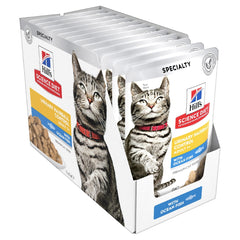 Choosing the right stage-specific cat food can be overwhelming with the wide range of options available. Here are some tips to help you make an informed decision:
Choosing the right stage-specific cat food can be overwhelming with the wide range of options available. Here are some tips to help you make an informed decision:
1. Read the labels
Take the time to read the labels on cat food carefully. Look for clear indications that the food is formulated for the specific life stage of your cat, such as "kitten formula" or "senior cat formula." Pay attention to the ingredients list and make sure it contains high-quality protein sources and limited fillers.
2. Consult our knowledgeable staff
Our team of staff are an excellent resource when it comes to choosing the right cat food for your furry friend. They can provide personalised recommendations based on your cat's individual needs and health concerns.
3. Consider your cat's preferences
While nutritional content is important, it's also essential to consider your cat's preferences. Cats can be notoriously picky eaters, so finding a food that they enjoy is crucial. If possible, try out small sample sizes before committing to a larger bag or case of cat food.
Transitioning between stages: Tips for a smooth change in your cats diet
When transitioning your cat between life stages or switching to a new cat food formula within the same life stage, it is important to do so gradually. Sudden changes in diet can cause digestive upset and refusal to eat. Here are some tips for a smooth transition:
1. Gradual transition
Mix a small amount of the new cat food with your cat's current food. Start with a ratio of around 10-20% new food to 80-90% old food. Gradually increase the proportion of new food over the course of a week or two until your cat is solely eating the new food. This slow transition allows your cat's digestive system to adjust without causing any discomfort.
2. Monitor your cat's response
Observe your cat during the transition period. Pay attention to any changes in their appetite, stool consistency, or overall behavior. If you notice any significant changes or concerns, consult your veterinarian for guidance.
3. Be patient
Remember that cats can be creatures of habit, and it may take some time for them to adjust to a new diet. Be patient and give your cat time to get used to the new food. If they initially refuse to eat the new food, try different flavors or textures to find something they enjoy.
Common misconceptions about stage-specific cat food
There are several misconceptions surrounding stage-specific cat food. Let's debunk some of the most common ones:
1. "One-size-fits-all" cat food is sufficient
While it may be tempting to opt for a generic cat food that claims to be suitable for all life stages, it is important to remember that cats have unique nutritional needs at each stage. Stage-specific cat food is specially formulated to meet these needs and provide optimal nutrition.
2. Kittens can eat adult cat food
Kittens have higher energy and nutrient requirements compared to adult cats. Feeding them adult cat food may not provide them with the necessary nutrients for proper growth and development. It is important to feed kittens a diet specifically formulated for their needs.
3. Senior cats don't need special food
Senior cats have specific age-related health concerns that can be addressed through specialised diets. Senior cat food contains ingredients that promote joint health, cognitive function, and overall well-being. It is important to provide your senior cat with the nutrition they need to age gracefully.
Prioritising your cat's health with stage-specific nutrition
Understanding the unique nutritional needs of our cats at different life stages is essential for their well-being. By providing them with stage-specific cat food, we can ensure they receive the right nutrients to support their growth, energy, and longevity.
From the rapid growth of kittens to the maintenance of adult cats' optimal health and the support of senior cats' age-related concerns, stage-specific cat food plays a crucial role. By reading labels, consulting with veterinarians, and transitioning gradually, we can make informed choices and prioritise our cats' health.
Remember, our feline friends rely on us to provide them with the nutrition they need. Let's give them the best possible care by understanding and meeting their stage-specific dietary requirements.
© weknowpets 2024


